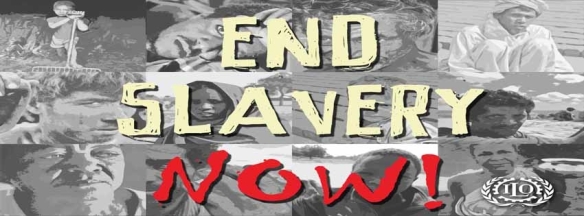The ILO’s new campaign to End Slavery Now!
Today, 21 million women, men and children are trapped in slavery all over the world. Prominent artists, athletes and advocates have teamed up with the ILO and its new campaign to End Slavery Now, and so can you.
Find out how you can Take Action!
- There are more than 75 million unemployed youth worldwide in 2012.
- 40 % of the jobless worldwide are young people.
- Young people are 3 times more likely than adults to be jobless
- More than 200 million working youth earn less than US$ 2 a day
- At least 10 % of youth are not in education, employment or training (NEET)
In June 2012, the ILO adopted a resolution at its annual Conference, calling for immediate, targeted and renewed action to tackle the youth unemployment crisis. The resolution provides a portfolio of tried and tested measures in five areas: macro-economic policies, employability, labour market policies, youth entrepreneurship and rights. It underscores the need for balance, coherence and complementarity across the policy measures.
The ILO call for action on youth employment calls on governments and the social partners:
- To foster pro-employment growth and decent job creation through macroeconomic policies, employability, labour market policies, youth entrepreneurship and rights to tackle the social consequences of the crisis, while ensuring financial and fiscal sustainability.
- To promote macroeconomic policies and fiscal incentives that support employment and stronger aggregate demand, improve access to finance and increase productive investment – taking account of different economic situations in countries.
- To adopt fiscally sustainable and targeted measures, such as countercyclical policies and demand-side interventions, public employment programmes, employment guarantee schemes, labour-intensive infrastructure programmes, wage and training subsidies and other specific youth employment interventions. Such programmes should ensure equal treatment for young workers.
What are the challenges to achieving social justice for young people in 2012?


